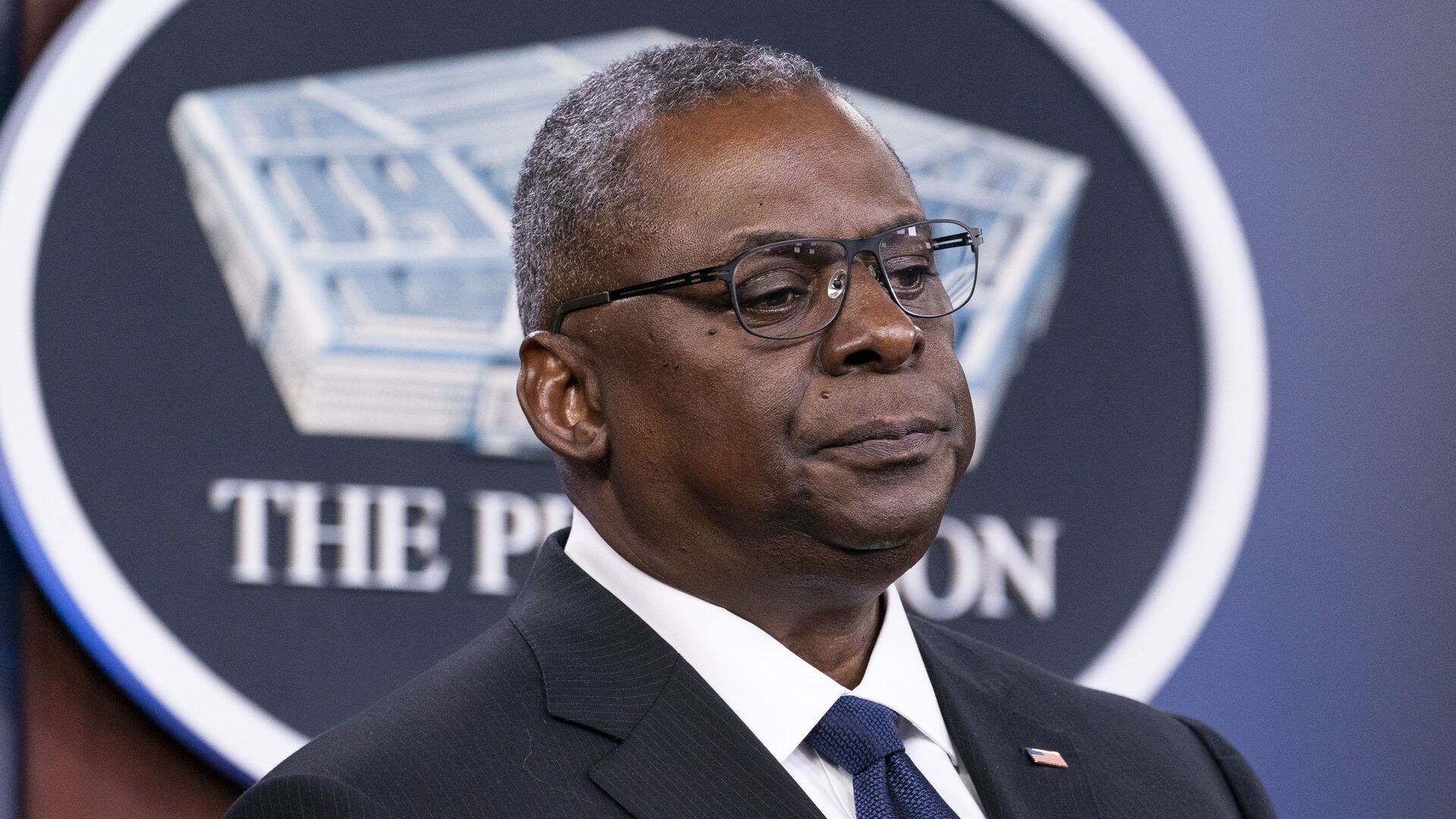Pentagon: 'Nobody' Predicted Afghan Government Would Fall in Just 11 Days
01:04 GMT 23.08.2021 (Updated: 05:35 GMT 30.04.2023)

© AP Photo / Alex Brandon
Subscribe
US intelligence services and the Pentagon had previously presented extremely broad time frames for a possible collapse of the Ashraf Ghani government, which ranged from a couple of months to two years. The fall of Kabul to the Taliban* last Sunday thus came as a complete surprise to many in Washington, according to media reports.
US Secretary of Defense Lloyd Austin claimed that no one imagined the Afghan government would fall in only 11 days, as the whole thing was "very rapid," he said in an interview with ABC's "This Week."
"It was a very rapid, fast-moving, fast-paced evolution," Austin told the show's co-anchor, Martha Raddatz, as he defended the administration's handling of the ongoing crisis. "This all occurred in a span of about 11 days. Nobody predicted that, you know, the government would fall in 11 days."
Early US intelligence projections on how long the Afghan government could hold off the Taliban following a military withdrawal differed substantially, the Pentagon chief noted.
"There were assessments that ranged initially from one to two years to, you know, several months, but it was a wide range of -- of assessments," he said. "As the Taliban began to make gains, and then we saw that in a number of cases, there was less fighting and more surrendering and more forces just kind of evaporating, it was very difficult to predict with accuracy."
"We're going to try our very best to get everybody—every American citizen who wants to get out, out."
— This Week (@ThisWeekABC) August 22, 2021
EXCLUSIVE: @MarthaRaddatz presses @SecDef Lloyd Austin on whether Americans and Afghan allies will be evacuated by the Aug. 31 deadline. https://t.co/w2SQReUj8X pic.twitter.com/dIlvuByyVz
When asked if the United States' withdrawal planning was "acceptable and appropriate," Austin said he believed so, "based upon, what we were looking at and the inputs to the plan," before criticizing the previous administration of Donald Trump for putting the country in a situation where there were "no good options."
"But I think you have to go back and look at what the administration inherited. I mean, we came in. We were faced with a May 1 deadline to have all forces out of the country. This deal had been struck with the Taliban," he explained. "And so he [President Biden] had to very rapidly go through a detailed assessment and look at all options in terms of what, you know, what he could do. And none of those options were good options."
Austin's comments come in light of a week of unrest in Afghanistan, during which the US military worked to remove American people and Afghan allies from the region as the Taliban's attack intensified.
MORE: @MarthaRaddatz: "Will you ask the president to extend the deadline if they're not out?"@SecDef Austin: "As we approach that deadline, we'll make a recommendation to the president." https://t.co/VfgGeUIloj pic.twitter.com/FJWvZrsWAO
— This Week (@ThisWeekABC) August 22, 2021
Around 17,000 individuals have been evacuated from Afghanistan in the last week, according to Pentagon statements, and around 22,000 have been evacuated since the end of July. Around 2,500 Americans have been rescued from the war-torn nation so far.
According to media reports, Americans and Afghan civilians are increasingly being subjected to violence and intimidation as they travel to Kabul's Hamid Karzai International Airport, which remains the only way out of the chaos of the Afghan capital.
As a result, the US Embassy in Kabul issued a security alert on Saturday, advising Americans not to travel to the airport or approach airport gates “unless you receive individual instructions from a U.S. government representative,” citing “potential security threats” outside the airport.
The Biden administration has been lambasted for its handling of the Afghan crisis, with many questioning whether the president should have gone ahead with his decision to withdraw US forces from the country ahead of the Taliban's intensified onslaught and the subsequent takeover.
After a months-long campaign, the Taliban took control of Kabul on August 15, forcing the civilian government to fall.
*The Taliban, a terrorist group banned in Russia and a number of other countries.

